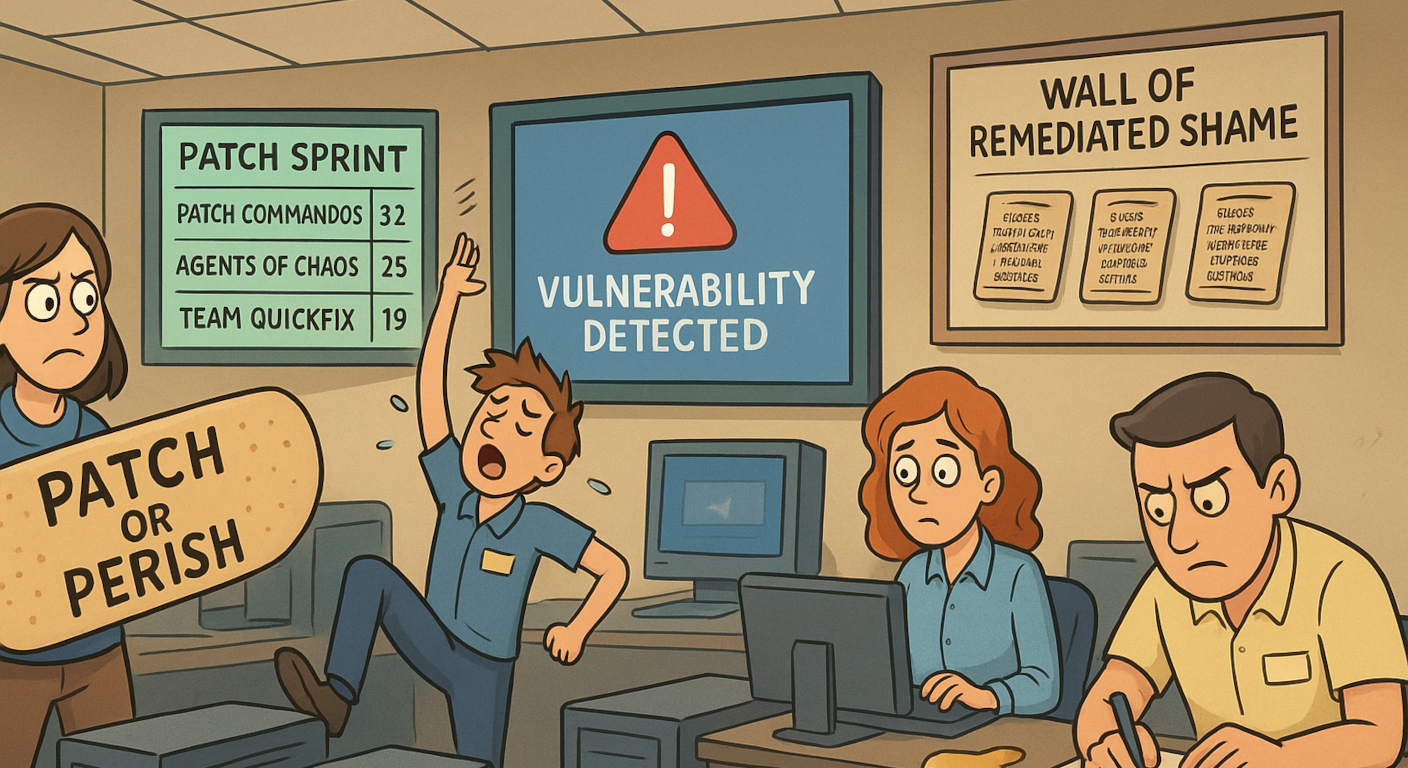The objective of this patch sprint choreography is to change the tedious act of patching from a soul-crushing administrative duty into a mildly entertaining team exercise, complete with structured chaos, passive-aggressive incentives, and just enough humiliation to ensure participation.
Change patching from a dreaded chore into a fast, fun, and competitive team activity, complete with gamification, music, and rewards, to eliminate hackable inertia.
Pre-sprint: Laying the groundwork for reluctant enthusiasm Theme and soundtrack Designation: “Operation Patch And Pray” or “The Great Vulnerability Purge Of 2025”, or … Musical accompaniment: A carefully curated selection of motivational anthems (e.g., The Imperial March for urgency, Yakety Sax for when things go wrong). Visual reinforcement: A digital leaderboard displaying real-time patch progress, because nothing motivates like public accountability. Roles and responsibilities Patch Commandos (System Administrators) – Tasked with deploying fixes before morale deteriorates further. Vulnerability Inquisitors (Penetration Testers) – Responsible for verifying patches while maintaining an air of smug superiority. Morale Officers (Management) – Obliged to provide snacks and unconvincing pep talks. Agents Of Chaos (Red Team) – Permitted to introduce simulated breaches to keep the exercise from becoming too enjoyable. The sprint: A structured exercise in controlled panic Round one: Patch or face the consequences Duration: 30-60 minutes of concentrated regret. Scoring Mechanism: One point per successfully patched system. Bonus points awarded for: Being the first team to declare victory (subject to verification). The most creatively worded patch log entry (e.g., “Closed this vulnerability before the auditors noticed”). Penalty: If the Agents of Chaos successfully breach an unpatched system, the offending team can endure a lecture on basic cyber hygiene. Round two: The verification farce Purpose: To confirm that patches were not merely applied but actually function as intended. Additional humiliation factor: If the Vulnerability Inquisitors uncover a lingering flaw, the responsible team can perform a brief interpretive dance illustrating their failure. Round three: The backup charade Critical Task: Ensure backups are both immutable and restorable. Entertainment value: In case backups prove unreliable, the team lead can recount a personal tale of professional disgrace (e.g., “There was an incident involving a production database and an ill-advised ‘DROP TABLE’ command…”). Post-sprint: Rewards and psychological reinforcement Victory ceremonies The Golden Patch Award – A physical token of dubious value, bestowed upon the winning team. The Wall Of Remediated Shame – A public display of conquered vulnerabilities, each marked with a sarcastic epitaph. Sustenance For The Defeated – Biscuits (because morale cannot survive on pride alone). Ensuring future compliance Patch DJ Rotation – A monthly honour (or punishment) ensuring musical variety in future sprints. The “Least Disastrous” Prize – For teams demonstrating marginal improvement since the last debacle. Conclude the exercise with a mock incident report titled “How We Avoided Catastrophe Through Sheer Luck And Peer Pressure.”
...




